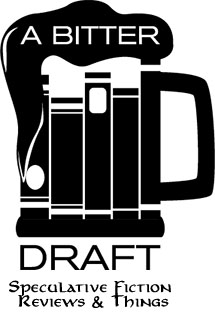 Several months back I was looking through the catalogue for Gollancz and one book in particular caught my eye, and it was Nathan Hawke’s The Crimson Shield. Notice anything different about the cover when compared to others? The title and author aren’t there – they’re on the binding. And with a cover that beautiful, it’s both a bold strategy and a no-brainer. Hawke, the pseudonym of Stephen Deas, author of The Memory of Flames, Thief-Taker’s Apprentice, and Silver Kings series, claims inspiration from the legendary David Gemmell in writing the Gallow trilogy. The inspiration is clearly visible, as it feels much look a story Gemmell would write – but it’s got its own identity and something that I can’t quite point out that, while it does feel like a Gemmell story, gives it its own distinct feel as well.
Several months back I was looking through the catalogue for Gollancz and one book in particular caught my eye, and it was Nathan Hawke’s The Crimson Shield. Notice anything different about the cover when compared to others? The title and author aren’t there – they’re on the binding. And with a cover that beautiful, it’s both a bold strategy and a no-brainer. Hawke, the pseudonym of Stephen Deas, author of The Memory of Flames, Thief-Taker’s Apprentice, and Silver Kings series, claims inspiration from the legendary David Gemmell in writing the Gallow trilogy. The inspiration is clearly visible, as it feels much look a story Gemmell would write – but it’s got its own identity and something that I can’t quite point out that, while it does feel like a Gemmell story, gives it its own distinct feel as well.
The book’s inside cover is a beautifully detailed map (it’s red in the book), allowing the tracking of Gallow’s progress with ease as well as look for historical events such as Selleuk’s Bridge that are mentioned often enough to attract curiosity. As I read the story, I got a strong feeling that Hawke created this world with a great deal of backstory in mind.

Gallow is a Lhosir, a people made resembling the Norse, known to most of the world as the forkbeards due to, you guessed it, their forked beards. Gallow, however, shaved his beard and forsook his people in order to stay with his wife Arda, a Marroc – a people recently conquered by the Lhosir and their king, Yurlak. Naturally, there is a lot of tension between the Marroc and the Lhosir after the war, and Gallow is looked down upon by people of both countries. The Vathen, a people to the east of both the Marroc and the Lhosir, are the local horse-lords, and are warring with the Marroc and therefore the Lhosir. Gallow is caught up in the war after an attempt to leave that part of his life behind. The Vathen are in possession of a god-blessed blade known as the Sword of the Weeping God, and the prince of the Lhosir, Medrin Twelvefingers, who is quite the bastard, tasks Gallow to find the blade’s counterpart – the Crimson Shield. Finding the Shield is a fairly minor part of the story though, as the three-way conflict takes the fore for the most part.
The Crimson Shield is focused on memorable characters and detailed brutality rather than descriptive worldbuilding. As I said before, the world clearly has a lot of backstory, but Hawke doesn’t overload us with details on how well the roof of some house was thatched or what size portion of hops was used in brewing the Marroc beer – he tells us how it is and no more. Where Hawke excels is the grittiness of battle. His depiction of the Norse shield-wall was particularly good, and his descriptions of battle are very similar to Joe Abercrombie in his First Law trilogy in that they’re very brutally vivid. Corvin Screambreaker, called the Widowmaker by the Marroc due to his leadership of the Lhosir in the brutal conquering of the Marroc, was very reminiscent of Druss the Legend from Gemmell’s debut, Legend, and ended up being my favorite and definitely one of the more memorable characters of this year. Screambreaker was not alone though, as many of the minor characters stood out as well.
As with most heroic fantasy, the plot builds up to a climax at the end, though the entire book is paced very well and had chapters that were short enough to turn “just one more chapter” into an all-nighter. Gallow is a great character who tries to do right in a world where people like to do the opposite and I need to get my hands on the sequel, Cold Redemption, as soon as possible. If and when you end up reading The Crimson Shield, you without a doubt have to read to the final page, including the epilogue and prologue to the sequel, and if you’re like me, the final line will put an ear-to-ear grin on your face.
Find The Crimson Shield on:
Amazon (US)
and find Nathan Hawke/Stephen Deas on Twitter and on his website there’s an awesome interactive map with several free short stories you will definitely want to read to read about Gallow’s past.

Will definitely give it a read. If I can get The Whale Road here! Those British books sure seem to get lost over the Atlantic.
They do! My first copy got lost somewhere along the way.